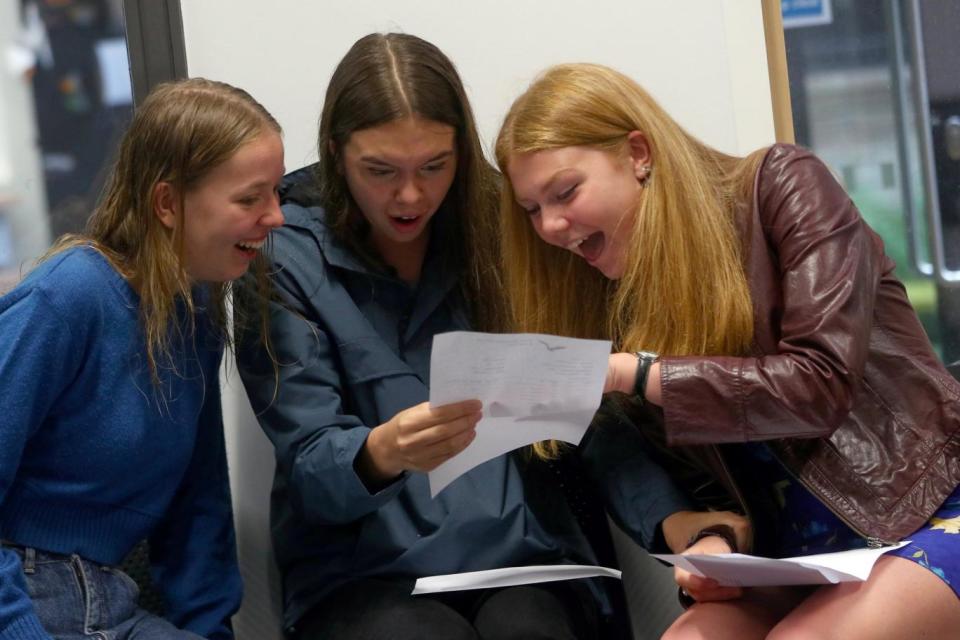A level results day 2018: Well-off students are better able to 'take advantage' of the clearing system, university official warns
Well-off students are better equipped to "take advantage" of the university clearing system, a leading university official has warned.
Speaking on the BBC's Victoria Derbyshire prgramme, Middlesex University pro-vice chancellor and marketing director Kate Everest said students from wealthier backgrounds are better prepared for the clearing system.
Clearing, run by admissions service Ucas, is the process by which universities and colleges fill any places they still have left on their degree courses.
Students who do not achieve their predicted grades are able to see which courses still have places remaining, and apply.
Ms Everest said universities have a "responsibility" to work in partnership with schools and colleges to ensure that all students have access to support before their results come out.
Discussing the clearing system, Victoria Derbyshire asked Ms Everest: "We hear a lot about more well off students being able to take advantage of the university clearing system because they are better prepared for the system. Is that fair, is that true?"
Ms Everest said: "I think that is often true. Universities have a responsibility to make sure they are reaching out into schools and colleges earlier than results day, and working in partnership with schools to make sure people are accessing the advice."
The pro-vice chancellor said Middlesex University has been running a call centre over the last six weeks "taking calls and listening to people" to offer support in advance of results day.
She added: "A lot of universities are geared towards that now because we need to make sure that people make the right choices.
"It's not just about getting them in the door, it's making sure that they have a degree that can help them get a good job."
Ms Everest also argued for making conditional offers in some cases, where students are interviewed and submit a portfolio of work.
She said: "It's important to emphasise that not all students have three A-levels or three predicted A-levels.
"Actually what we are seeing is students with work experience - who have come from different pathways.
"What you are doing is assessing people's potential to succeed, and that's not just about their grades."

The university official appeared on the BBC programme as students across the country received their A-level results on Thursday.
More than one in four A-levels were awarded an A or A* this year - the highest proportion for six years, national figures show.
But there has been a fall in the number of students accepted on degree courses at UK universities.
In total, 411,860 students - from the UK and overseas - have taken up places, down 1 per cent compared with the same point last year, according to initial data published by admissions service Ucas.
Meanwhile some 16.1 per cent of those from the most disadvantaged backgrounds have been accepted - up 0.4 percentage points.

 Yahoo News
Yahoo News 